 MyDogBreeds
MyDogBreeds Glen of Imaal Terrier is originated from Ireland but Basset Fauve de Bretagne is originated from France. Both Glen of Imaal Terrier and Basset Fauve de Bretagne are having almost same height. Both Glen of Imaal Terrier and Basset Fauve de Bretagne are having almost same weight. Both Glen of Imaal Terrier and Basset Fauve de Bretagne has same life span. Both Glen of Imaal Terrier and Basset Fauve de Bretagne has almost same litter size. Both Glen of Imaal Terrier and Basset Fauve de Bretagne requires Low maintenance.
Glen of Imaal Terrier is originated from Ireland but Basset Fauve de Bretagne is originated from France. Both Glen of Imaal Terrier and Basset Fauve de Bretagne are having almost same height. Both Glen of Imaal Terrier and Basset Fauve de Bretagne are having almost same weight. Both Glen of Imaal Terrier and Basset Fauve de Bretagne has same life span. Both Glen of Imaal Terrier and Basset Fauve de Bretagne has almost same litter size. Both Glen of Imaal Terrier and Basset Fauve de Bretagne requires Low maintenance.
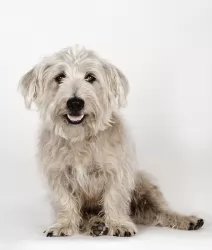 Hailing from Ireland and known also as the Wicklow Terrier or just Glen, the Glen of Imaal Terrier was used to get rid of rats, badgers and otters as well as being a good all-round farm dog.
Hailing from Ireland and known also as the Wicklow Terrier or just Glen, the Glen of Imaal Terrier was used to get rid of rats, badgers and otters as well as being a good all-round farm dog.
Using his strength, he was good at digging into burrows to root out badgers, but unlike other terriers, he wouldn’t go on and on yapping around his prey. He isn’t an excessive barker.
The terrier was recognised by the Irish Kennel Club in 1934 and later by the American Kennel Club in 2004. The Canadian Kennel Club recognized Glens in 2017.
 The Basset Fauve de Bretagne from France was introduced to the UK in 1983, and this smallest of the French hounds is rarely seen outside France, and when you do it is in Britain. This French hunting breed belonging to the Hound group in all likelihood descends from the Grand Fauve de Bretagne which is now extinct.
The Basset Fauve de Bretagne from France was introduced to the UK in 1983, and this smallest of the French hounds is rarely seen outside France, and when you do it is in Britain. This French hunting breed belonging to the Hound group in all likelihood descends from the Grand Fauve de Bretagne which is now extinct.
Long ago the dog was used for hunting and there was even a time when it was on the brink of extinction.The breed became very rare but was later bred with the Basset Griffon Vendeen as well as the Wire Haired Dachshund which has resulted in the breed we have today. The first Basset Fauve was imported into the USA in November 2001.
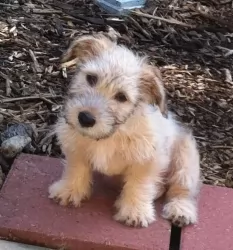 An interesting fact with the Glen of Imaal Terrier is that this is a dwarf breed, being a big sized dog on short legs, with the front feet turning out.
An interesting fact with the Glen of Imaal Terrier is that this is a dwarf breed, being a big sized dog on short legs, with the front feet turning out.
A typical Glen of Imaal Terrier stands at roughly 30 – 36cm and weighs up to about 16kg. Another interesting aspect with this dog is that it can take up to 4 years to reach maturity.
The head of this muscular dog is large, the ears are half erect, and while the tail has always been traditionally docked, it is often left long. The double coat of the dog is soft with the undercoat but he has a wiry outercoat. The color of the coat is essentially wheaten, tan or blue. The coat doesn’t shed much but some Glen owners strip excess hair a few times during the years.
Glen of Imaal terriers are energetic, easygoing and they make splendid pets for any family. He is more than happy to give up lying around for games and activity just to lie at his owner’s feet. He is an intelligent dog too and even though he is somewhat stubborn, he responds well to training and socialization. In fact training and socialization is important for every dog breed to prevent negative behavior and to ensure your pet is obedient.
 The Basset Fauve de Bretagne is a smallish hound, with a long body and deep chest. He is lively and friendly. He is a wire-coated dog, looking similar to a golden cocker spaniel, but his coat is coarse and quite springy and wiry to the touch. He is nimble, he has plenty of courage, he is lively, friendly and amenable. He has short legs, but unlike other Basset breeds, these don’t have that crooked, turned outwards appearance that the Basset Hound has.
The Basset Fauve de Bretagne is a smallish hound, with a long body and deep chest. He is lively and friendly. He is a wire-coated dog, looking similar to a golden cocker spaniel, but his coat is coarse and quite springy and wiry to the touch. He is nimble, he has plenty of courage, he is lively, friendly and amenable. He has short legs, but unlike other Basset breeds, these don’t have that crooked, turned outwards appearance that the Basset Hound has.
The tail is fairly long and held upright when the dog is alert. He has long low-set ears which reach roughly to the end of the nose. The coat is always wheat- or fawn or red in color. The Basset Fauve de Bretagne, also referred to as the Fawn Brittany Basset isn’t quite as low to the ground as the Basset Hound, measuring 32 – 38 cm.
Small, stocky and feisty, this rough-coated Basset is energetic, agile and quick and you’ll find that he gets on well with children as well as other pets in the house. Some training and socialization will go a far way to make him an even more super dog than what he is. He’ll make a wonderful family pet and will adapt well to country living as well as living in the city, if he can rely on you to take him for walks.
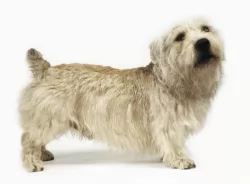 The Glen of Ismaal Terrier is more docile than other terrier breeds, but that doesn’t mean he isn’t feisty. He loves to play and is an adventurous dog, always on the lookout for exciting opportunities and to chase prey.
The Glen of Ismaal Terrier is more docile than other terrier breeds, but that doesn’t mean he isn’t feisty. He loves to play and is an adventurous dog, always on the lookout for exciting opportunities and to chase prey.
He is a good natured pet and he gets on well with adults, children and pets in the home. He can adapt well to life in the city or in the countryside so long as he is with his family members.
He isn’t a couch potato dog though, and wherever he lives, he will need a good amount of exercising. Treat him with the love and respect he craves, and you’ll have a wonderful canine companion.
 Smart and courageous, the Basset Fauve is such a wonderful pet to have in your home. He is gentle, loving and loyal and will adapt to living in the countryside or the city, so long as he is loved, fed well, exercised and given lots of attention.
Smart and courageous, the Basset Fauve is such a wonderful pet to have in your home. He is gentle, loving and loyal and will adapt to living in the countryside or the city, so long as he is loved, fed well, exercised and given lots of attention.
He was once a serious hunter, but these days he is most content to be friend and protector for his human family.
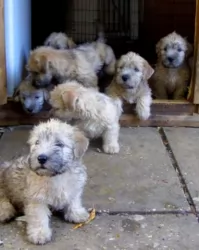 The Glen of Imaal Terrier is a feisty, healthy breed, particularly when he gets the best food there is, then he is not likely to get ill easily.
The Glen of Imaal Terrier is a feisty, healthy breed, particularly when he gets the best food there is, then he is not likely to get ill easily.
However, just like other dogs, he can be prone to certain health conditions such as hip dysplasia. When a dog is diagnosed with hip dysplasia, the socket part of the joint is poorly developed, so that is causes abnormal friction.
Inflammation and pain can be the result and your dog can become lame. Unfortunately, rapid weight gain with puppies can put more stress on the hips, and diets without the right balance of vitamins and minerals can be bad for good bone development.
 The Basset Fauve is free from inherited health problems in the UK and is in fact one of the hardiest of the Basset group. Like all Basset type breeds, as a dog owner you’ll have to keep an eye on your Basset Fauve as he can develop back problems as he gets older.
The Basset Fauve is free from inherited health problems in the UK and is in fact one of the hardiest of the Basset group. Like all Basset type breeds, as a dog owner you’ll have to keep an eye on your Basset Fauve as he can develop back problems as he gets older.
When it comes to your Basset Fauve’s health, make sure he gets all his shots, starting from when he is a puppy. Many of the dangerous canine diseases can be prevented with vaccines.
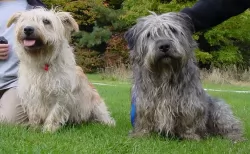 Caring for a Glen of Imaal isn’t going to be a huge job. This is what makes him such a wonderful pet as he is a straightforward pet, requiring little more than a brush to avoid the hair matting.
Caring for a Glen of Imaal isn’t going to be a huge job. This is what makes him such a wonderful pet as he is a straightforward pet, requiring little more than a brush to avoid the hair matting.
Check his ears, teeth and nails from time to time to ensure he is always in tip top condition.
If you intend making use of the convenience of commercially manufactured dog foods, the top quality one will provide you with balanced nutrition for your Glen and you can mix in some cooked brown rice, vegetables and chicken from time to time.
The Glen of Imaal Terrier is a small-breed dog and, he should be offered dog food that has been specially formulated for small, energetic dog breeds. You can also add in a little bit of raw meat into his kibble as a treat as this is important for keeping him free of skin allergies.
Make sure he always has a bowl of fresh, cool drinking water.
 The Basset Fauve is easy to maintain, and all that is required from you is to brush his wiry coat at least twice a week to remove all loose hairs. Look out for too much hair in the ear passage and remove it. The teeth should be brushed a couple of times a week with a dog toothpaste and brush to avoid plague build-up and the claws should also be trimmed.
The Basset Fauve is easy to maintain, and all that is required from you is to brush his wiry coat at least twice a week to remove all loose hairs. Look out for too much hair in the ear passage and remove it. The teeth should be brushed a couple of times a week with a dog toothpaste and brush to avoid plague build-up and the claws should also be trimmed.
Daily walks will be imperative for your Basset Fauve as he is an energetic dog and will need regular exercise. Just ignoring his energetic side will make him frustrated, bored and even destructive.
This breed of dog used to hunt small game and so he is lively and energetic. Because of this he will need a high-quality dog food. Always buy the best commercially manufactured dog foods and speak to your vet about the best one, and whether dry- or wet foods would best suit your canine friend. You want to provide your pet with variety, and it is imperative to include some raw- and cooked meat to his regular dog food to ensure he doesn’t battle with an itchy, dry skin.
Dog foods suited to age, activity levels and stage of life can ensure your dog is always energetic, full of life, healthy and happy and not prone to putting on weight. Always ensure that clean, cool water is constantly available to your pet.
If you get a puppy from a reputable breeder, they will tell you what the puppy’s feeding schedule has been. Make sure to stick to the same routine for a while so that your puppy doesn’t have any tummy upsets.